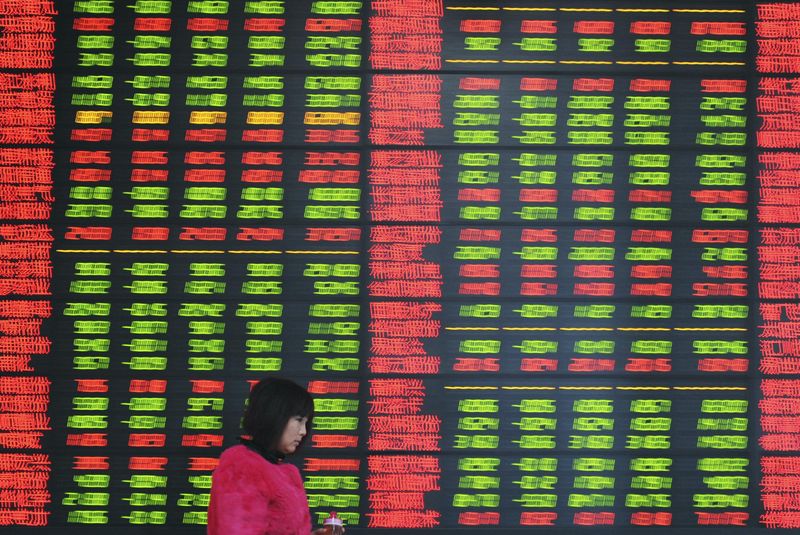This post was originally published on this site

Investing.com – Asia Pacific stocks were mostly down on Monday morning, as investors digested the latest, disappointing Chinese data.
China’s Shanghai Composite fell 0.57% by 10:52 PM ET (2:52 AM GMT) while the Shenzhen Component edged down 0.15%. Data released earlier in the day showed that fixed asset investment grew 6.8% year-on-year, industrial production contracted 2.9% year-on-year, Chinese industrial production grew 4% year-on-year, and retail sales contracted 11.1% year-on-year in April 2022. The Chinese unemployment rate stood at 6.1%.
Hong Kong’s Hang Seng Index was down 0.34%.
Japan’s Nikkei 225 was up 0.38% while South Korea’s KOSPI edged down 0.13%. In Australia, the S&P/ASX 200 edged up 0.19%.
The People’s Bank of China moved to effectively cut the interest rate for new mortgages over the weekend, and the central bank will also release its loan prime rate on Friday. Although Shanghai is partially loosening its COVID-19 lockdown, some analysts expect a cut in the rate on one-year policy loans later in the day as the country’s measures to contain the latest COVID-19 outbreak continue to bite on the economy.
In the bond market, the key question is whether economic worries could help stem the U.S. Treasury selloff in 2022 to date. The benchmark 10-year U.S. yield climbed to 2.94%. Investors also remain concerned that high inflation and rising borrowing costs, alongside the war in Ukraine and the COVID-19 situation in China, could lead to a recession.
Despite the worries, some investors are hesitant of calling a bottom for equities despite a 17% drop in global shares in 2022. “There is a belief we could feasibly see a short-term calming before another leg lower with a greater degree of panic involved,” Pepperstone Group head of research Chris Weston said in a note.
However, Goldman Sachs Group Inc. (NYSE:GS) Senior Chairman Lloyd Blankfein urged companies and consumers to brace for a U.S. recession, saying that the risk is “very, very high.” The firm’s economists now expect the economy to expand 2.4% in 2022 and 1.6% in 2023, down from the previous 2.6% and 2.2%.
The war in Ukraine, precipitated by Russia’s invasion on Feb. 24, continues and tensions remain high especially as Finland and Sweden moved toward joining the North Atlantic Treaty Organization.
“The markets are being defined as volatile, fragile and to some extent unstable,” with bonds again looking like a haven asset adding to an “interesting mix,” Citigroup Inc. senior investment specialist Mahjabeen Zaman told Bloomberg.
A slew of Fed policymakers will speak throughout the week, beginning with New York Fed President John Williams later in the day. Fed Chairman Jerome Powell and others will speak on Tuesday, followed by Philadelphia Fed President Patrick Harker a day later.
Elsewhere, the Reserve Bank of Australia will release the minutes from its May policy meeting on Tuesday, with G-7 finance ministers and central bankers meeting a day later.

